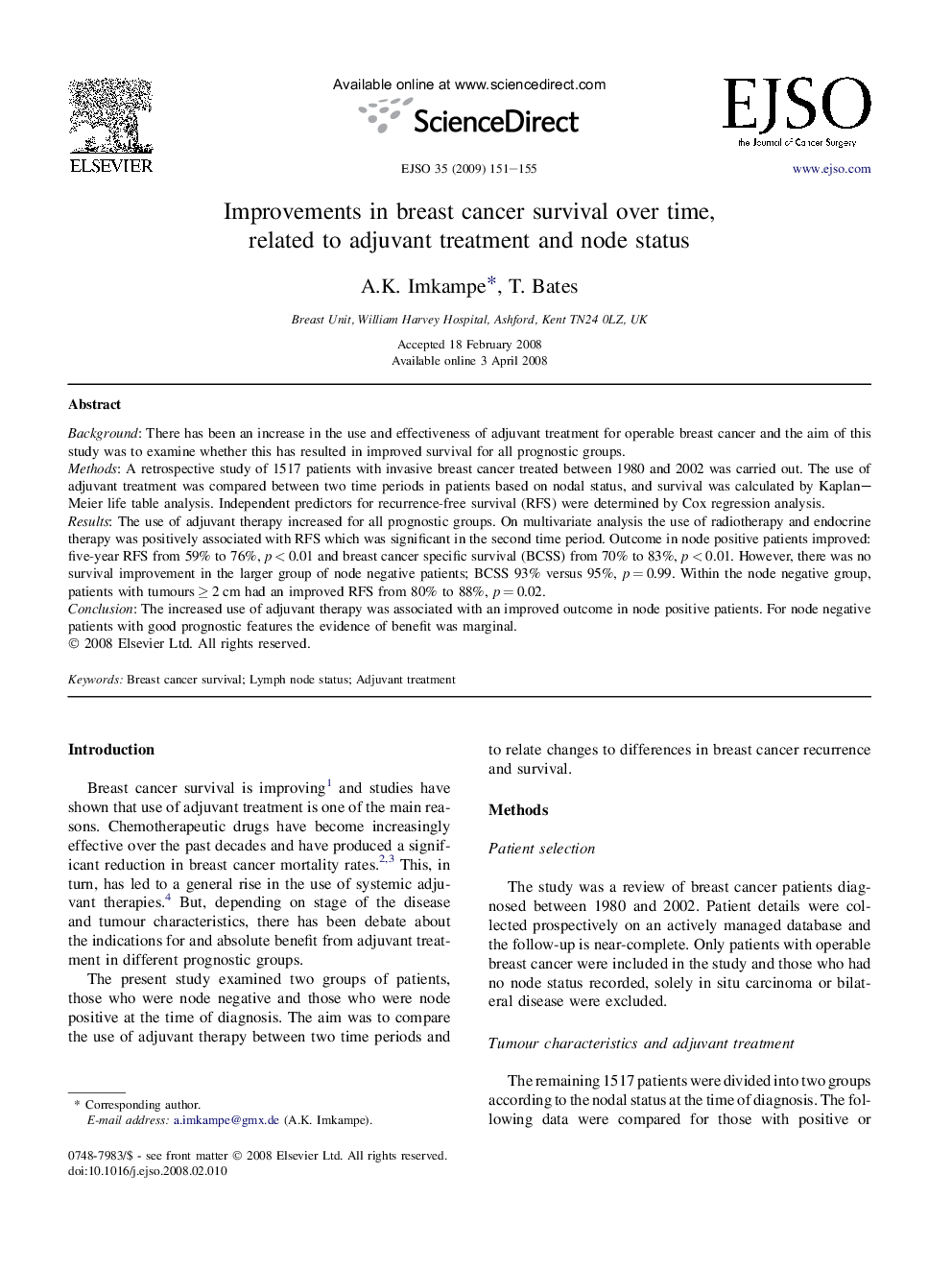| Article ID | Journal | Published Year | Pages | File Type |
|---|---|---|---|---|
| 3987761 | European Journal of Surgical Oncology (EJSO) | 2009 | 5 Pages |
BackgroundThere has been an increase in the use and effectiveness of adjuvant treatment for operable breast cancer and the aim of this study was to examine whether this has resulted in improved survival for all prognostic groups.MethodsA retrospective study of 1517 patients with invasive breast cancer treated between 1980 and 2002 was carried out. The use of adjuvant treatment was compared between two time periods in patients based on nodal status, and survival was calculated by Kaplan–Meier life table analysis. Independent predictors for recurrence-free survival (RFS) were determined by Cox regression analysis.ResultsThe use of adjuvant therapy increased for all prognostic groups. On multivariate analysis the use of radiotherapy and endocrine therapy was positively associated with RFS which was significant in the second time period. Outcome in node positive patients improved: five-year RFS from 59% to 76%, p < 0.01 and breast cancer specific survival (BCSS) from 70% to 83%, p < 0.01. However, there was no survival improvement in the larger group of node negative patients; BCSS 93% versus 95%, p = 0.99. Within the node negative group, patients with tumours ≥ 2 cm had an improved RFS from 80% to 88%, p = 0.02.ConclusionThe increased use of adjuvant therapy was associated with an improved outcome in node positive patients. For node negative patients with good prognostic features the evidence of benefit was marginal.
